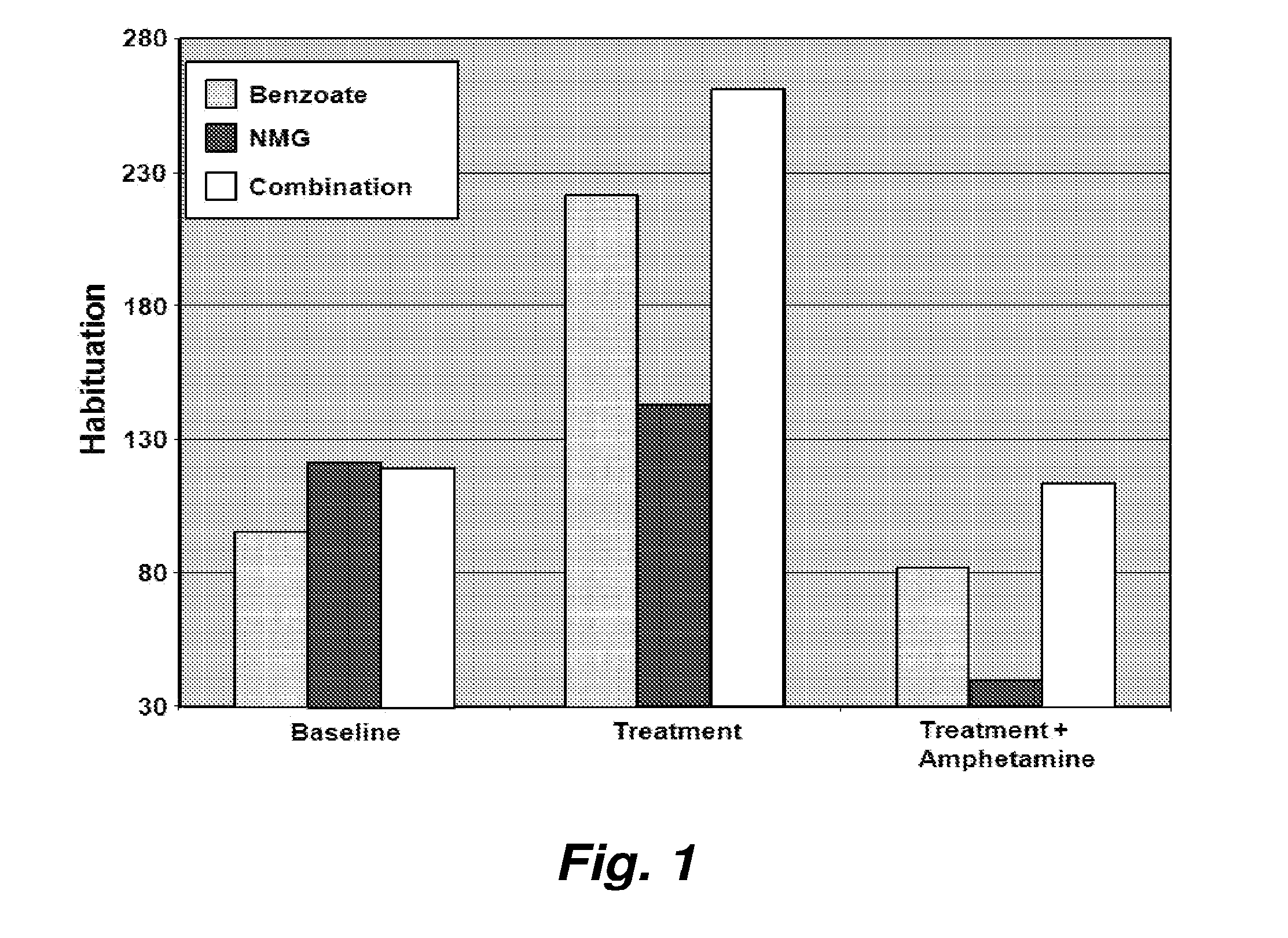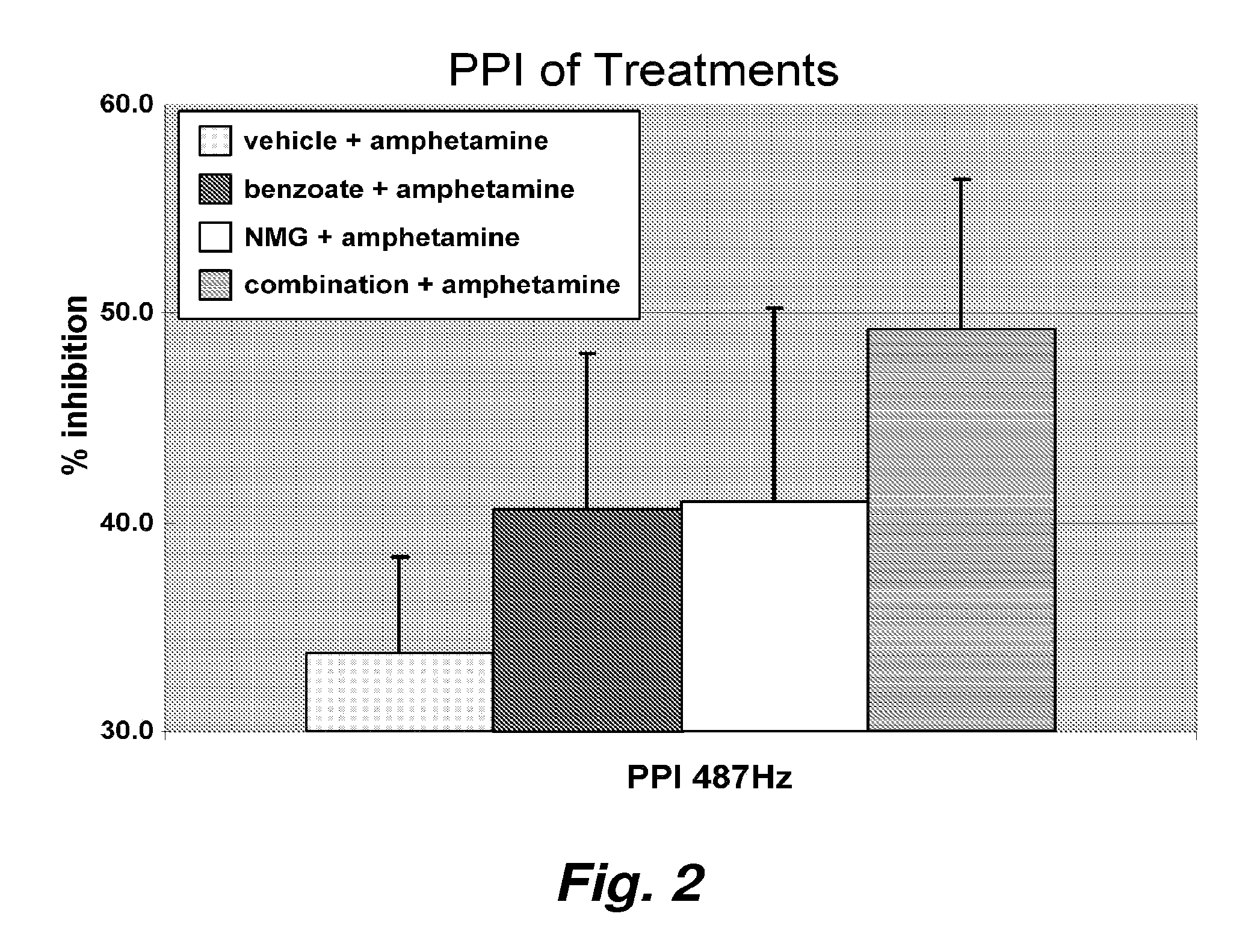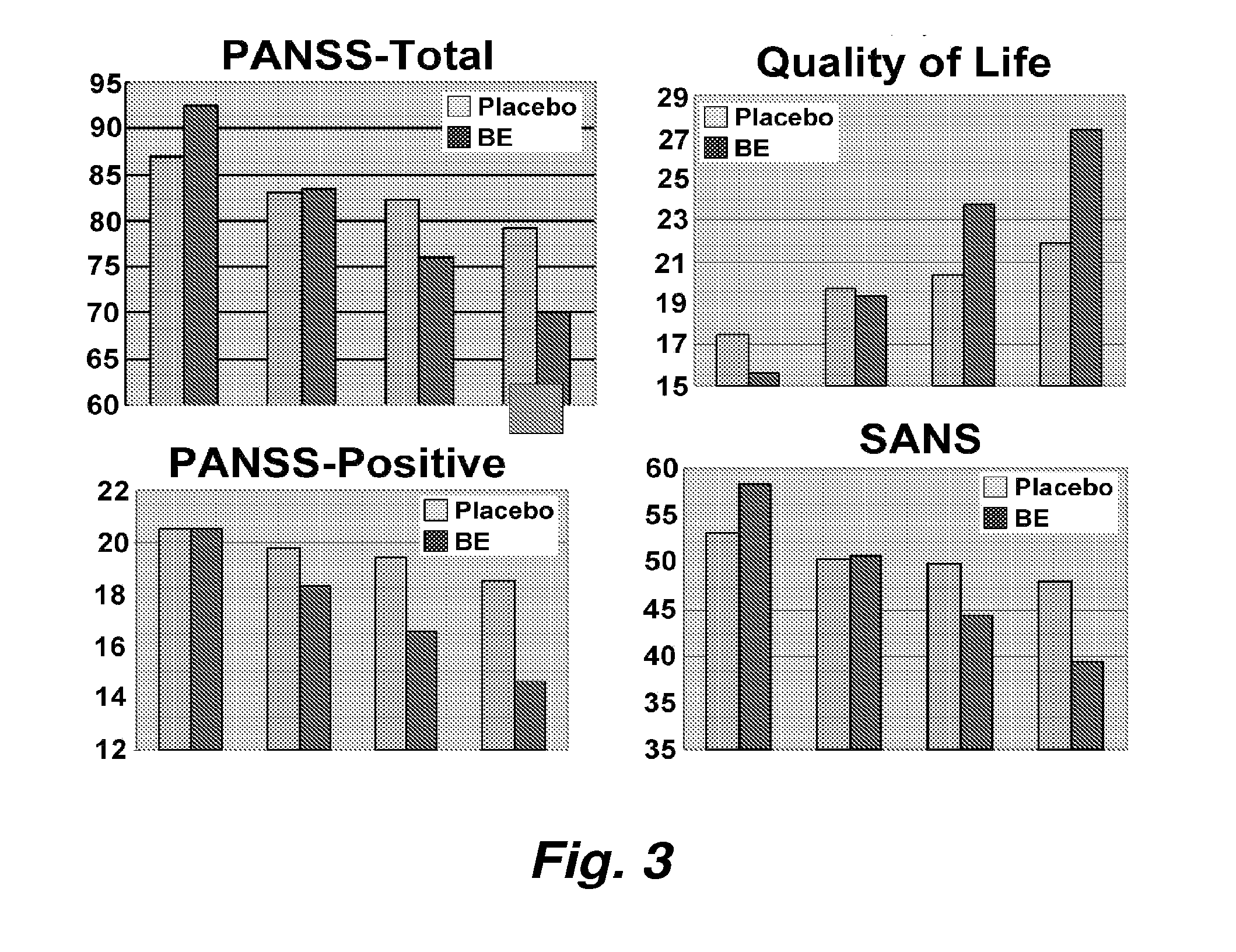Sorbic and Benzoic Acid and Derivatives Thereof Enhance the Activity of a Neuropharmaceutical
a neuropharmaceutical and sorbic acid technology, applied in the field of neuropsychiatry, can solve the problems of limited cognitive deficit treatment ability of conventional antipsychotic drugs and new atypical antipsychotic drugs, and disorder accompanied by high morbidity and mortality rates
- Summary
- Abstract
- Description
- Claims
- Application Information
AI Technical Summary
Benefits of technology
Problems solved by technology
Method used
Image
Examples
example 1
Introduction
[0110]Treatment by the agents enhancing N-methyl-D-aspartate neurotransmission have gained attention as an alternative for patients not responding to available psychotropics including antipsychotic medication. However, the efficacy of the individual NMDA-enhancement is limited at typical dosages. We believe a combination of NMDA-enhancing agents will render better clinical efficacy than an individual agent alone. To evaluate this hypothesis, we applied the combinational strategy in the best accepted neurophysiological model of schizophrenia in rodents, startle habituation and prepulse inhibition (PPI).
[0111]The startle response is comprised of a constellation of reflexes elicited by sudden relatively intense stimuli. It offers many advantages as a behavioral measure of central nervous system activity when elicited by acoustic (noise burst), electrical (cutaneous), tactile (air puff), or visual (light flash) stimuli. The startle reflex has served as a tool for studying fu...
example 2
Treatment of Schizophrenia by Sodium Benzoate, A D-Amino Acid Oxidase Inhibitor
[0121]Schizophrenia is a devastating mental disorder with high morbidity and mortality, affecting about 1% of the population worldwide. Furthermore, care for schizophrenia is extremely expensive in terms of direct and indirect costs. Clinical manifestation of schizophrenia consists of three domains: positive symptoms, negative symptoms, and neuropsychological deficits that are poorly addressed today.
Therapeutic Need for Schizophrenia—Beyond Clozapine
[0122]Pharmacotherapy of schizophrenia has been developed for half century. Conventional antipsychotics, which blockade majority of D2 dopamine receptors only exerted effects on positive symptoms. Newer atypical antipsychotics targeting both dopamine D2 and serotonin 5HT2 receptors have been suggested to be superior to conventional agents in terms of efficacy for positive symptoms, negative symptoms and cognitive deficits. Despite this, there were a considerab...
example 3
[0137]Following acclimation at least 7 days in the animal facility prior to initiation of behavioral testing, the animals (rats) were subjected to the forced swim test (FST). The method of the FST has been used in previous animal studies of depression, which was modified by Cryan from the Porsolt's FST. (Porsolt et al, 1977; Cryan et al, 2002) The test was performed using a acrylic cylinder (diameter, 20 cm; height, 40 cm) filled to a height of 30 cm with 25° C. water. Rats were processed to a 15-min conditioning swim. Following 24 h after their first exposure, the rats were again placed in the swim apparatus for 5 min. The behavior of rats was observed 5 min after the administration of various drug treatments or 0.9% saline (control). All behavioral testing was conducted between 1600-1800 h. On the study day, the total periods of immobility during the 5-min testing period were recorded using the EthoVision Basic V 3.1 analysis program (Noldus, Wageningen, Netherlands). For the pres...
PUM
| Property | Measurement | Unit |
|---|---|---|
| body weight | aaaaa | aaaaa |
| sorbic acid | aaaaa | aaaaa |
| neuropsychiatric disorder | aaaaa | aaaaa |
Abstract
Description
Claims
Application Information
 Login to View More
Login to View More - R&D
- Intellectual Property
- Life Sciences
- Materials
- Tech Scout
- Unparalleled Data Quality
- Higher Quality Content
- 60% Fewer Hallucinations
Browse by: Latest US Patents, China's latest patents, Technical Efficacy Thesaurus, Application Domain, Technology Topic, Popular Technical Reports.
© 2025 PatSnap. All rights reserved.Legal|Privacy policy|Modern Slavery Act Transparency Statement|Sitemap|About US| Contact US: help@patsnap.com



